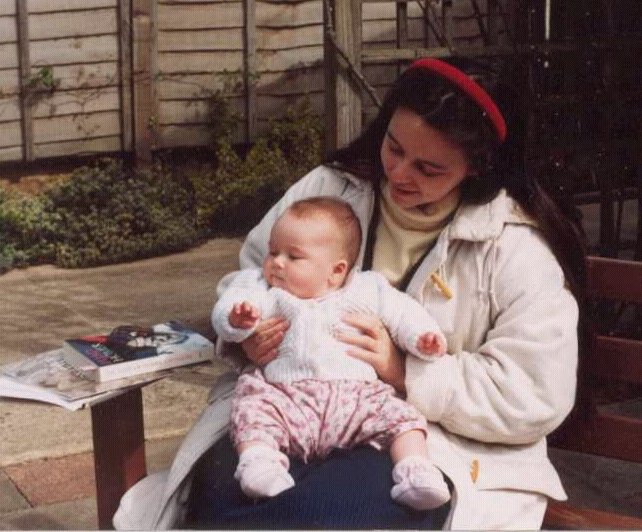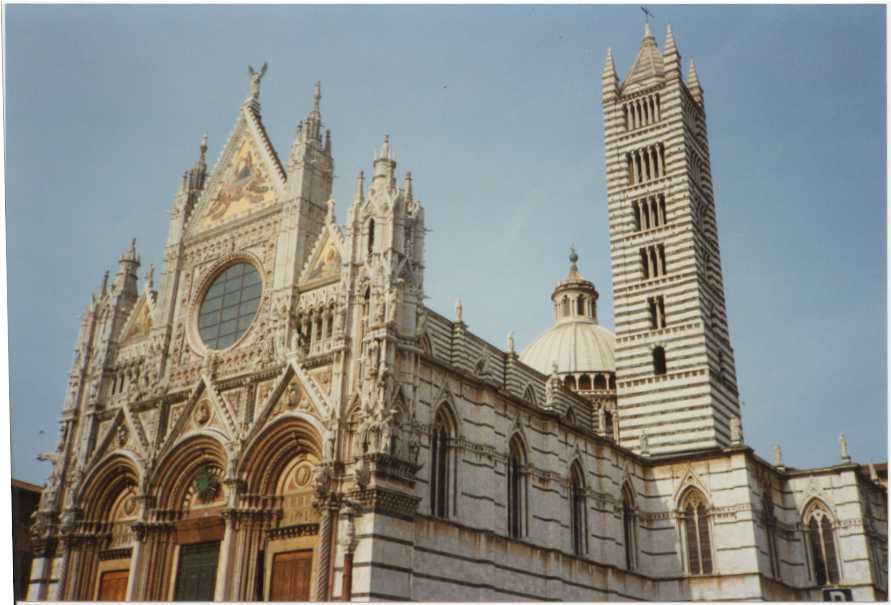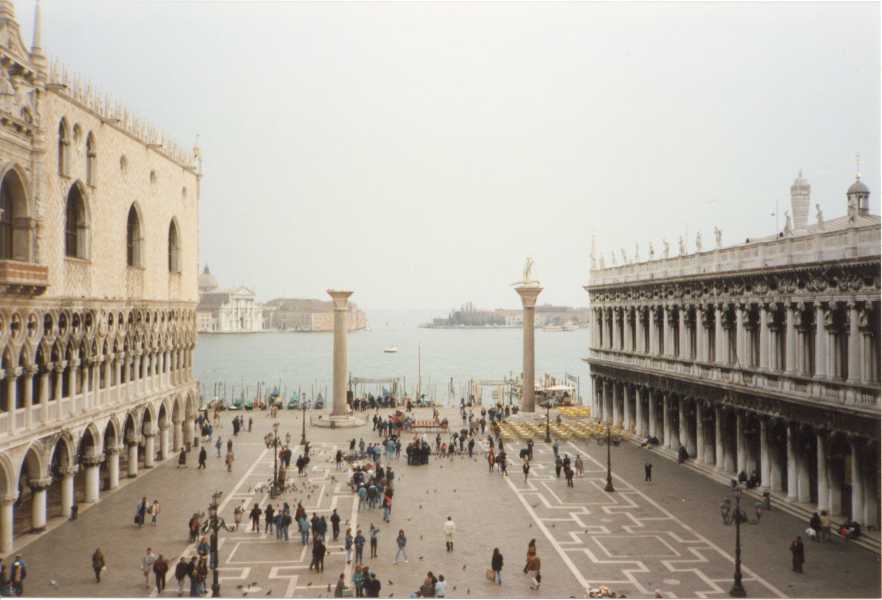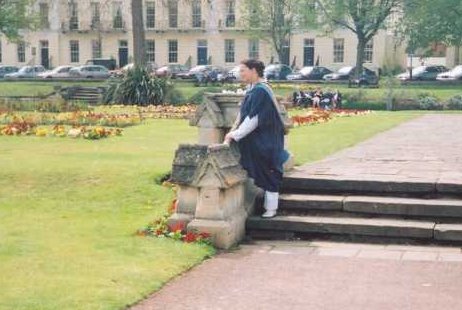Me, ME and OU
What follows is an adaptation of two articles written for the Gloucester City ME Group.
Studying
Me, ME and OU
What follows is an adaptation of two articles written for the Gloucester City ME Group.
Studying
After ten years of part-time study with the Open University, I have finally completed enough courses to graduate with a BA Honours degree.
It's not been easy, which is why I am comfortable boasting about this! As an ME sufferer for the last 12 years, severely affected for the last nine years, studying was something I could manage, even though I have been able to do little else in all that time.
Considering my poor physical condition, my brain is usually fairly active. I know that many sufferers who can walk further than I can are unable to read. So in this, I consider myself lucky. Although I am not well enough to read and concentrate for more than a few hours a day, this window has given me sufficient time to complete half credit courses to a high standard. Half credit courses require approximately six hours study a week, so everytime I missed a few days, I was able to catch up again quite comfortably.
My main problem with studying arose when it became necessary to take full credit courses, some of which required 14 hours a week, and that was often too much. I had to take full-credits if I wanted to build up a proper degree profile, as the half credits in the Arts faculty, which I had not studied, did not really make up an adequate profile.

Each course lasts nine months, beginning in February, and ending with an exam in October. Each course can be taken individually, with no commitment to take on more in the future. I have taken my studies one year at a time, knowing that if my health improved and I was able to return to work, even part-time, I could pull out of a course, and not take on any future courses. Ironically, continuing ill health has made it possible to build up enough components for a degree.
I took my first Open University course (Shakespeare) in 1991, when I was still well enough to work full-time. I was able to read a little in my lunchbreaks, and spent each Sunday completing the week's allocated section. I hadn't undertaken any studying since I'd completed my 'A' Levels several years before, and found that this fulfilled a desire simply to learn more. Even though I needed to sleep every evening, on returning home from work, I was well enough to cope with the extra load on top of a busy full-time job.
My original intention was never to take a degree: that would take far too much time, which, I assumed, I would never have. As I had enjoyed the first year's work so much, I decided to sign up for a second year (Augustan Rome). I met friends on this course, who were able to help me get to tutorials, and gave me support during the year as my health declined until I was forced to retire from work just days before my exam. At the time I was so distraught at losing a job I loved, that I spent all my energies in a heavy bout of revision, scored a Distinction (the highest level) for the course, and naturally made myself much worse!
With nothing else to do, and understanding parents who take care of my travelling, laundry and cooking, I was able to commit a high proportion of my healthy time to studying, and that is what I've done ever since. I always used to try and get to tutorials, but this has not always been possible. If tutorials were scheduled for Cheltenham in the morning, I could get a lift, and enter the college in my wheelchair. However, if they were in Bristol, in the afternoons, as they usually were, then I could rarely attend.
The OU is very keen to help students with disabilities of any kind, even to the extent of providing sheepskin rugs to ease the pain of an uncomfortable seat - artificial sheepskin for vegetarians. A number of courses include summer schools. I was told that given my illness, I could be excused summer schools, and this would be taken into account in my final result. But I always thought I would miss so much of the course, and of student life if I did that, so I always opted for courses without summer schools.
I missed a lot of complimentary courses and study holidays, which were added extras. I would have loved those ten days in Rome, the week in Tuscany, or the day school at Hampton Court, but they were not to be.

Understanding tutors were very lenient when I had to continually ask for extra time to submit assignments, of which there are between four and eight a year, depending on the course. Writing the essays has been something to aim at; something to feel proud of achieving, when there has been nothing else I could do.
Eight of my ten exams I have taken at home, rather than at the main examination centre with all the other students. Sitting up and holding a pen for three hours was simply not an option, and I have been able to type all my exams on my word processor, and take out extra time for rests and stretches when required, all in the presence of an invigilator who would bring my exam paper, check that I wasn't downloading previously written material, and take away my essays for marking.
I used to be a lot more keen to attend tutorials than I have been of late, and used to make great efforts to get to college for the six or seven two-hour meetings assigned throughout the year, but I soon realised that these could take so much energy that I was unable to do anything at all for a couple of days afterwards. This was clearly not helping matters at all, so for the last two years I was able to receive home visits for private tuition, and phone tutorials.

The three full-credit courses that I have undertaken have been the most challenging, purely because of the time needed to study. The last course I took was particularly heavy going, with a great deal of reading. I was never able to keep up with the schedule, and ended up omitting a total of seven weeks' work. Nevertheless, I found the whole thing enjoyable, and managed to scrape a Level 2 pass for this course, which means that I have enough Pass 2s and Distinctions to claim a first class honours degree.
My graduation ceremony is to be held on April 27, at Cheltenham Town Hall, which is where I used to work, and retired from in 1992. In a way, I feel this is bringing me full-circle. I used to sit outside the Drawing Room of the Town Hall on summer lunch breaks, studying during the first year of my degree. Later this month I am due to visit that room for the first time in ten years, to don my cap and gown.
~
Graduation Ceremony
The day of my graduation ceremony was a day I'll not forget in a hurry. After ten years of part-time studying, April 27, 2001 was my big day: the culmination of a decade of reading, note-taking, essay writing, revising and exams. An emotional day, too, as I was returning to my old work place for the ceremony, Cheltenham Town Hall, from where I'd retired with ill health, nine years before.
I was persuaded to tell The Citizen my story. I'm not the kind of person who seeks publicity, but I'd received such good feedback from friends and family, when I'd told them I was graduating, that I decided it was a good excuse to get ME into the newspapers once again.
Two days before the ceremony I rang the paper. Sala Lloyd soon rang back and interviewed me over the telephone. We had a good conversation for about ten minutes, so easy was she to talk to, that I wondered what I'd said when I put the phone down! Had I said too much? Had I talked complete gibberish? Quite possibly! Well, I wouldn't find out for a few days, so no point worrying about it.
My parents and grandmother came to the ceremony as my guests. Dad dropped us off under the portico of the Town Hall. I was rather nervous about entering the building after such a long absence: so many memories, but once through the door, I was fine, and got on with the business of the day. Because I can't walk very far, I was able to make special seating arrangements. I first registered at the reception desk, and was introduced to the disabilities officer who took us into the Hall, to show us the arrangements. I was to be seated closest to the stage, so I wouldn't have far to walk, or too long to stand up waiting my turn.
To the cloakroom to check my hair, before getting the gown, and queuing for the official photographs. I had to keep an eye on the time, as the photographer from The Citizen was coming to see me at 1pm. Luckily, my turn came after half an hour, and I just finished there as he walked up the corridor.
As it was a lovely day, he decided we should take photos for the paper in Imperial Gardens, at the rear of the Town Hall. I posed in a few different places, all the time trying not to squint into the sun. My eyes are sensitive to the light, and I wear sunglasses even when it's overcast, so this was a bit of struggle. At the beginning of the session the photographer asked me to throw my arms up in the air, and look as though I was celebrating. Well, I haven't been able to throw my arms up in the air for years, so that wasn't going to happen. He had to make do with me looking slightly studious, with squinty eyes!

Mum and Dad went off in search of sandwiches for our lunch, and along the way met my dear friend Avril, who graduated from the Open University a few years ago. She studied through years of ill health, too, so she knows just what this means to me. She had come to Cheltenham specifically to see me in my gown. By the way, Avril turned 70 last week - it's never too late to learn.
Back into the Town Hall, as it was beginning to fill up. Before taking my seat, I went to my old office to find some ex-colleagues who are still working there. It was lovely to catch up with Anita and Alison, after all this time.
So, to the ceremony. Three speeches began proceedings, including one by Helen Bamber OBE, who received an honorary doctorate, in recognition of her work dedicated to medical-related human rights.
200 students graduated at Cheltenham that day. The Masters degrees came first, followed by the Bachelors of Arts and Sciences. As a first class BA (Hons) graduate I was fairly close to the beginning, so I didn't have long to wait before I was called up on stage. There were attendants at either end to help me up and down the steps if I needed it. Luckily, I didn't need it, and neither did I use my walking stick! The Pro- and Vice-Chancellors shook everyone's hands as we crossed the stage. As most of us were, I was asked if I'd enjoyed my studies. They seemed so interested - they still looked interested as they reached the 200th student. Just as well for them, that none of us really had time to answer!
Finally, it was over. I decided not to join the procession out of the hall. My legs were beginning to stiffen up, and I was sure I would slow things down, so I slipped out the side door, and went to the Drawing Room to hand in my gown, and collect my certificate.
The Citizen and The Echo printed an article about me the following day, and I was relieved to see that I hadn't made a complete fool of myself. Some of the article was a little misleading, and one line I was quoted as saying, does not belong to me, but all in all, I was pleased. Sala had made a good job of compiling the information from a long conversation. It was also gratifying to see The Citizen had included an ME factfile. After all, that is the reason I did the interview.

~
Click to see the articles in The Citizen and The Echo
The following courses make up my degree profile - BA Hons (first class) in Humanities with Art History:
Shakespeare (1991)
Rome: The Augustan Age (1992)*
Culture and Belief in Europe, 1450-1600 (1994)*
Fifth-Century Athens BCE: Theatre, Democracy and City State (1995)
Art in Fifteenth-Century Italy (1996)
Siena, Florence and Padua: Art, Society and Religion 1280-1400
(1997)
Princes and Peoples: France and the British Isles, 1620-1714
(1998)
Art and it's Histories (1999)
Renaissance: a Cultural Enquiry (2000)
The courses marked*, together with Homer: Poetry and Society (1993)
also make up my Diploma in European Humanities.